
Broken gravestone of Black Civil War soldier at Lincoln Cemetery.
Gabriela Martínez/ WITF News

Broken gravestone of Black Civil War soldier at Lincoln Cemetery.
Gabriela Martínez/ WITF News

Gabriela Martínez/ WITF News
Broken gravestone of Black Civil War soldier at Lincoln Cemetery.
(York) — A light drizzle dampened the grass at Lebanon Cemetery, a historic Black cemetery in North York. It didn’t seem to slow Jenny De Jesus and Tina Charles, who roamed the grounds with metal detectors and poked the wet earth with ground probes. They were looking for sunken grave markers.
“It’s like the earth giving birth,” De Jesus said as another volunteer dug out a stone marker.
Someone pulled a bent, dirt-covered metal plaque out of the ground.
The volunteer group Friends of Lebanon Cemetery has added some names to the app Find a Grave, so Charles checked her phone and found the name on the plaque wasn’t listed. The plaque belongs to Virginia Slater, a York resident who died in 1990.
“Welcome back, Virginia,” Charles said.
A bit further down the row, a metal detector started beeping over another spot.
Eli C. Kinnard III, the Lebanon Cemetery superintendent who was helping De Jesus and Charles that day, pulled out what looked like an eroded cement brick from the ground. After brushing off the dirt and the broken grass roots dangling from the stone, De Jesus and Charles called out the name “Dagins.”
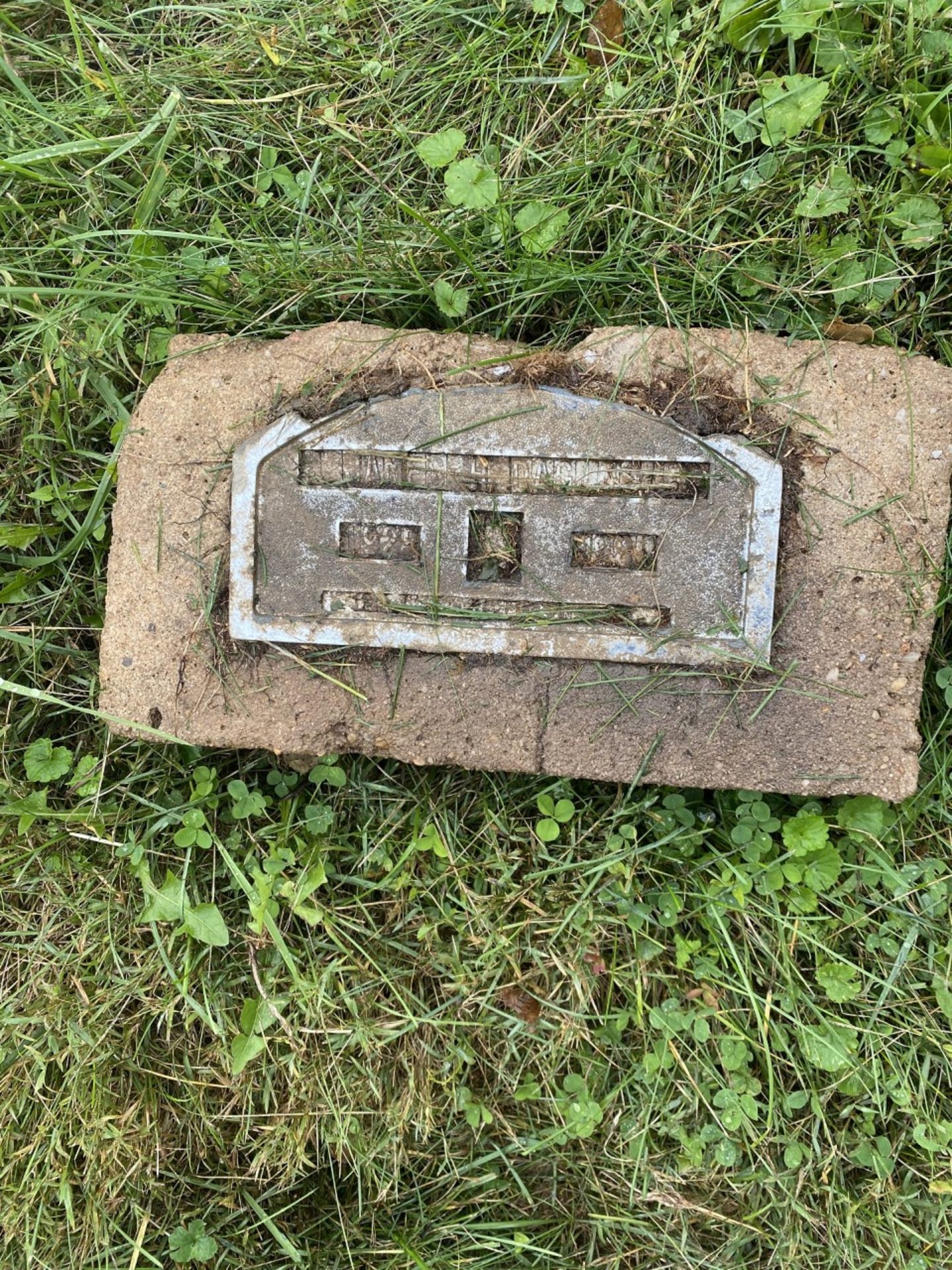
Gabriela Martínez/ WITF News
A veteran grave marker belonging to James H Dagins, Jr. who died in 1980.
James H. Dagins, Jr. was a World War II veteran who died in 1980. Years of rain and flooding caused his burial stone to sink into the ground. Now that they found his grave, the group can apply to get him a military headstone.
Friends of Lebanon Cemetery is dedicated to unearthing and preserving the history of Lebanon Cemetery, and these discoveries are common. Since the group started in 2019, members have uncovered close to 700 markers. They also help people reconnect with loved ones whose graves they had lost.
It is not clear how many people are buried in the 5-acre cemetery. Due to poor recordkeeping and management issues, the Friends are missing key documents. A map that showed the location of graves is missing, as are sales records of plots.
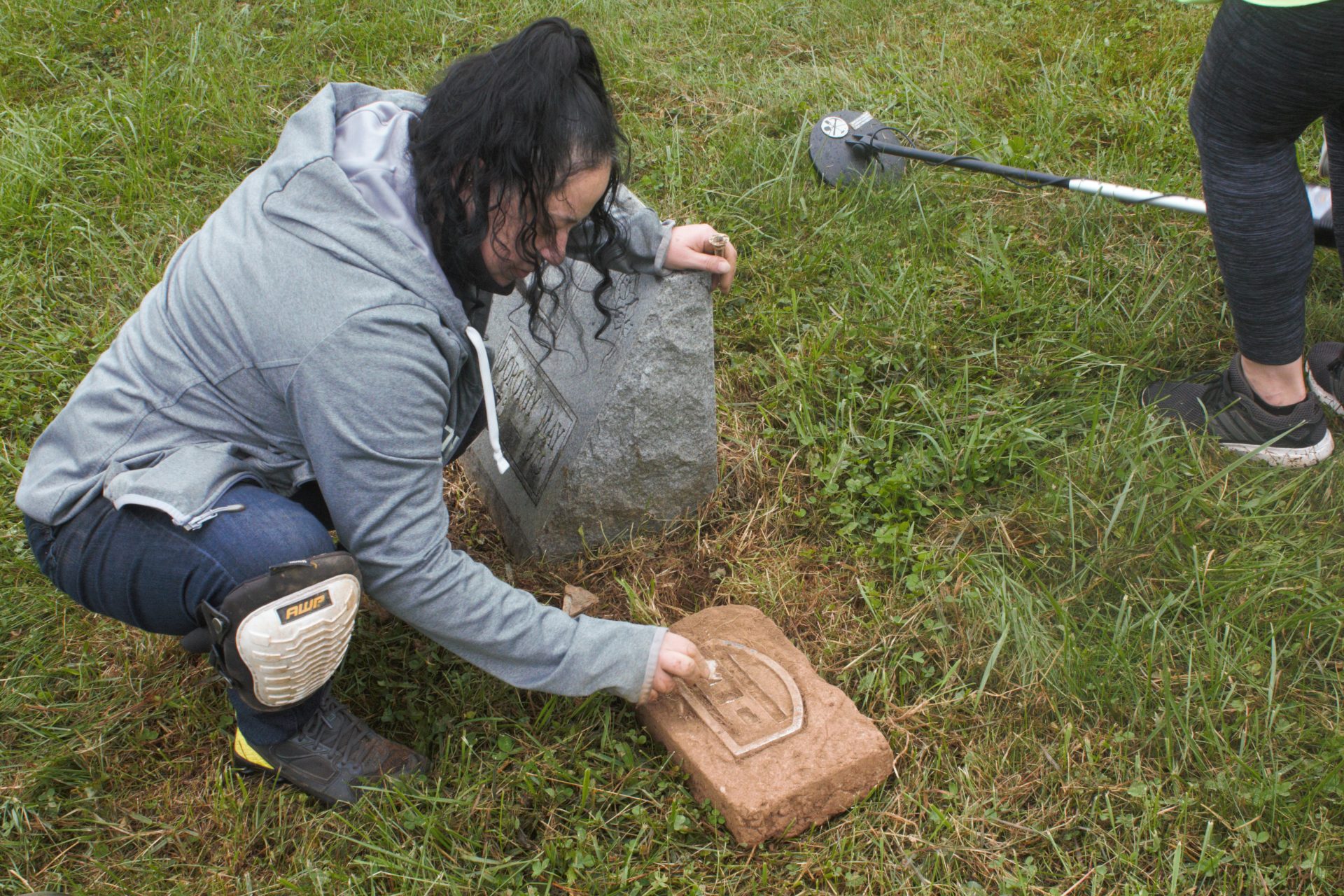
Gabriela Martínez / WITF News
Jenny De Jesus wiping off and examining a grave marker at Lebanon Cemetery.
State regulators allege the previous cemetery managers, Gloria and Gary Beattie, were operating without a license to sell grave plots. They now face potential fines. Gloria Beattie said she no longer is involved with the cemetery’s operations but is providing information requested by the state.
Because the current nonprofit running the cemetery is also named in the state’s allegations, it could also face fines.
Jeff Kirkland, president of the Lebanon Cemetery board of directors that formed earlier this year, said they are doing everything to make sure the cemetery is in compliance with state regulations and are working with an attorney to avoid penalties. He said the Beatties are no longer involved in managing the cemetery.
“It’s just a shame that there were no records kept that were forwarded to this new board,” Kirkland said. “We’re almost reinventing all the records of who owns plots, who’s buried where.”
Grassroots efforts can be hard to sustain
Lebanon Cemetery is an example of how Black cemeteries can be saved through grassroots efforts led by family and community members. The work of the Friends of Lebanon Cemetery has garnered media attention, and Giselle Fetterman, wife of Lt. Gov. John Fetterman, started a fundraiser for the grounds.
But many other Black cemeteries in Pennsylvania, like Lincoln Cemetery in Harrisburg, do not get the same level of support. That cemetery, which dates back to 1827, is owned by the Wesley Union A.M.E Zion Church. Some prominent members of Harrisburg’s Black community are buried there: Thomas Morris Chester, the first Black war correspondent in United States history who reported on the Civil War for the Philadelphia Press, and Ephraim Slaughter, who served in the Civil War as part of the 37th U.S. Colored Troops.
At first glance, Lincoln Cemetery may seem in good condition because of its mowed grass. But a tour of the grounds reveals fallen headstones and deep groundhog holes.
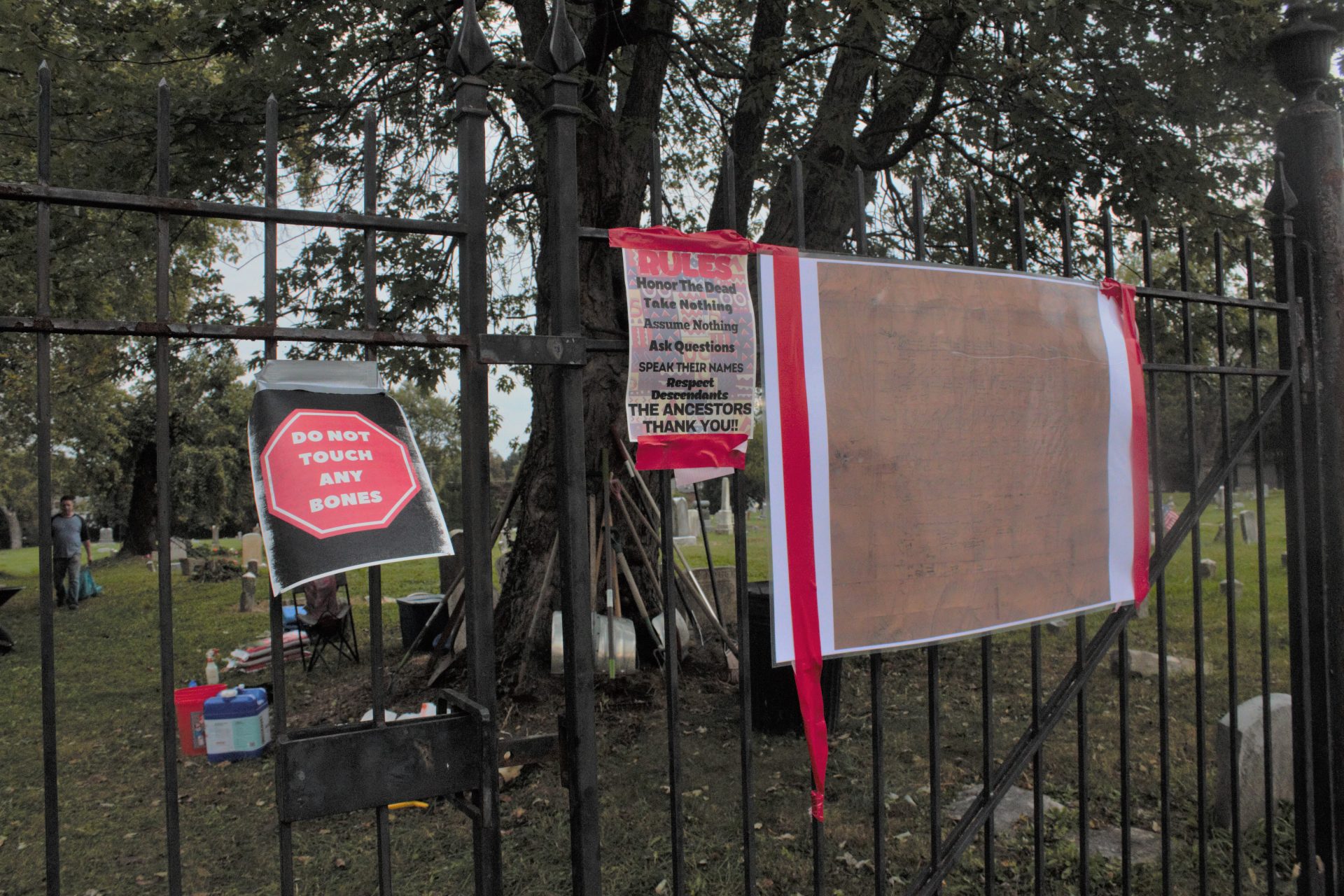
Gabriela Martínez / WITF News
Signs hanging outside Lincoln Cemetery in Harrisburg while Rachael Williams and her family host a cleanup at the site.
Rachael Williams, from Buffalo, N.Y., went there last summer to visit her grandfather’s grave for the first time in 30 years. What she saw shocked her: there were bones littered near groundhog holes.
“Devastating. It remains devastating,” Williams said. “Even though we’ve done a lot, it feels precarious.”
The discovery drove Williams to action. She created a group called Saving Our Ancestors’ Legacy. In October, Williams drove to Harrisburg with her family for the last cleanup of the year. Their goals were to clean headstones and document information about who is buried there.
She puts different colored flags on the ground: pink when she finds a hole, and orange when she finds bones. When she finds bone fragments, she wraps them in cloth and puts them back in the groundhog holes.
“I’m not sure how long we can continue coming because it’s been a huge financial burden and there hasn’t been really great turnouts at the cleanups, even though it’s improving as word gets out,” Williams said. “I think a lot of people are not aware that they have family buried here.”
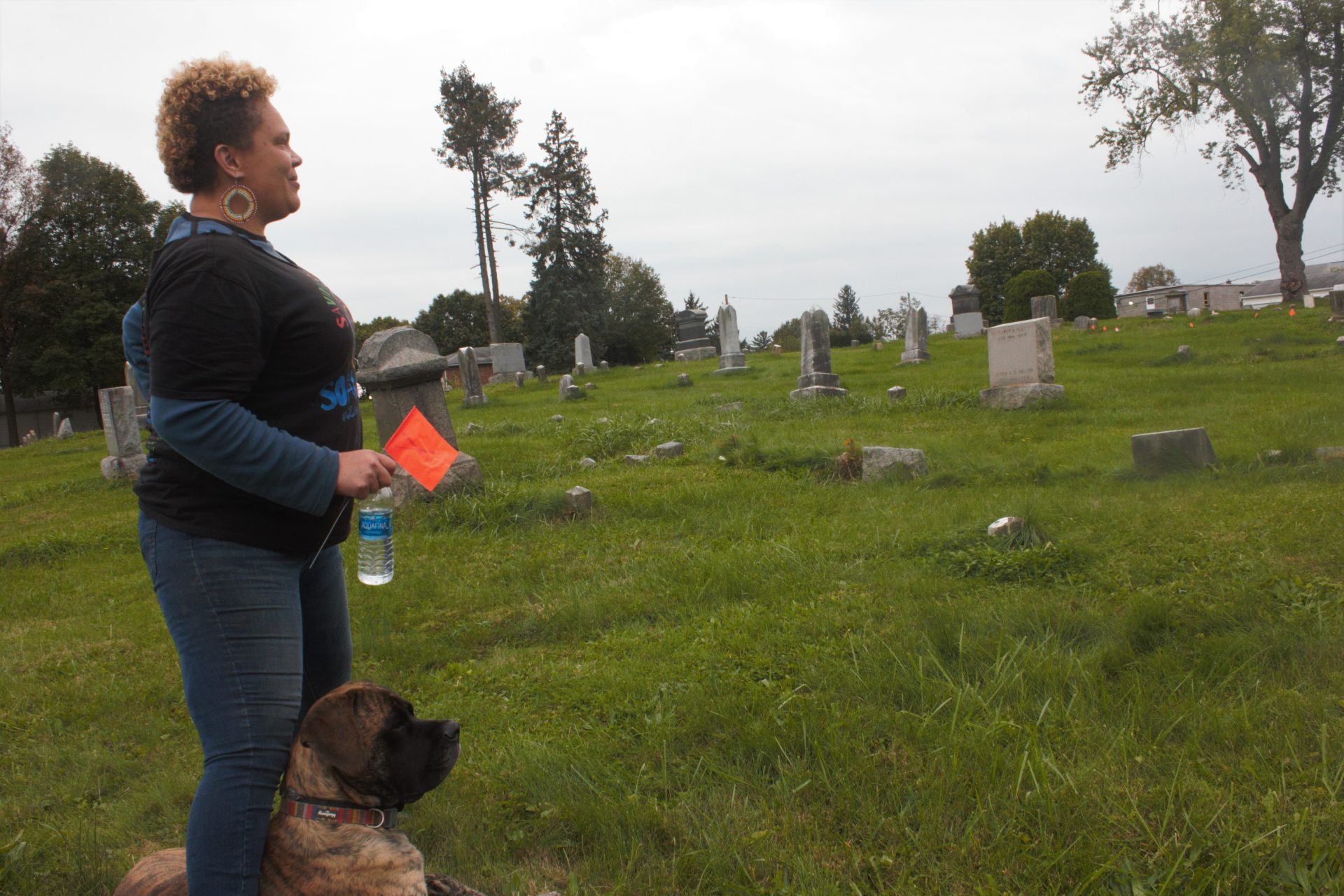
Gabriela Martínez/ WITF
Rachael Williams at her last cleanup of the year at Lincoln Cemetery in Harrisburg
Wesley Union A.M.E. Zion Church told PennLive that they are taking care of the cemetery to the best of their ability. The church has found it more difficult to take on the task of restoring a historic cemetery as its congregation grows smaller and financial resources dwindle.
Losing track of Black cemeteries
Communities lose track of historic Black cemeteries for a number of reasons.
Steven Burg, professor of public history at Shippensburg University, said African American burial grounds were built on marginal land that was not desired by most people.
“They may actually have started a cemetery and built a church, without the land ever being deeded to start off with,” said Burg, who has spearheaded the preservation of Locust Grove Cemetery in Shippensburg. “Sometimes there’s cemeteries that have been there for hundreds of years, that don’t actually have a deed or a clear person who owns them.”
A lot of them did not have perpetual care funds because the expectation was that church communities would maintain the grounds. When those communities declined or moved from the area, nobody would be left to care for cemeteries.
Pennsylvania’s fragmented cemetery laws can complicate preservation efforts.
There is no state law that adequately addresses what to do about abandoned cemeteries or unmarked burials, according to the Center for Rural Pennsylvania. The Pennsylvania Historical & Museum Commission’s authority doesn’t extend to archaeological remains, burial sites or sites on private property, the center’s report said.
The state Real Estate Commission regulates cemetery companies that sell grave plots, and ensures cemeteries set aside 15% percent of income for perpetual care. But those laws don’t apply to churches or fraternal organizations.
The state has no way to monitor the financial health of cemeteries. If money runs out, cemeteries can fall into disrepair.
The lack of centralized cemetery laws in the state also means there are a lot of hurdles for people who try to find information about cemetery ownership or burial records.
Samantha Dorm has encountered that. She has six generations of her family buried at Lebanon Cemetery, but she hasn’t found all their grave sites, even though they’re listed as being interred there.
Barbara Barksdale faced a different obstacle when she started working to save Midland Cemetery in Swatara Township, Dauphin County. The property had been condemned, even though Black veterans dating to the Civil War are buried there.
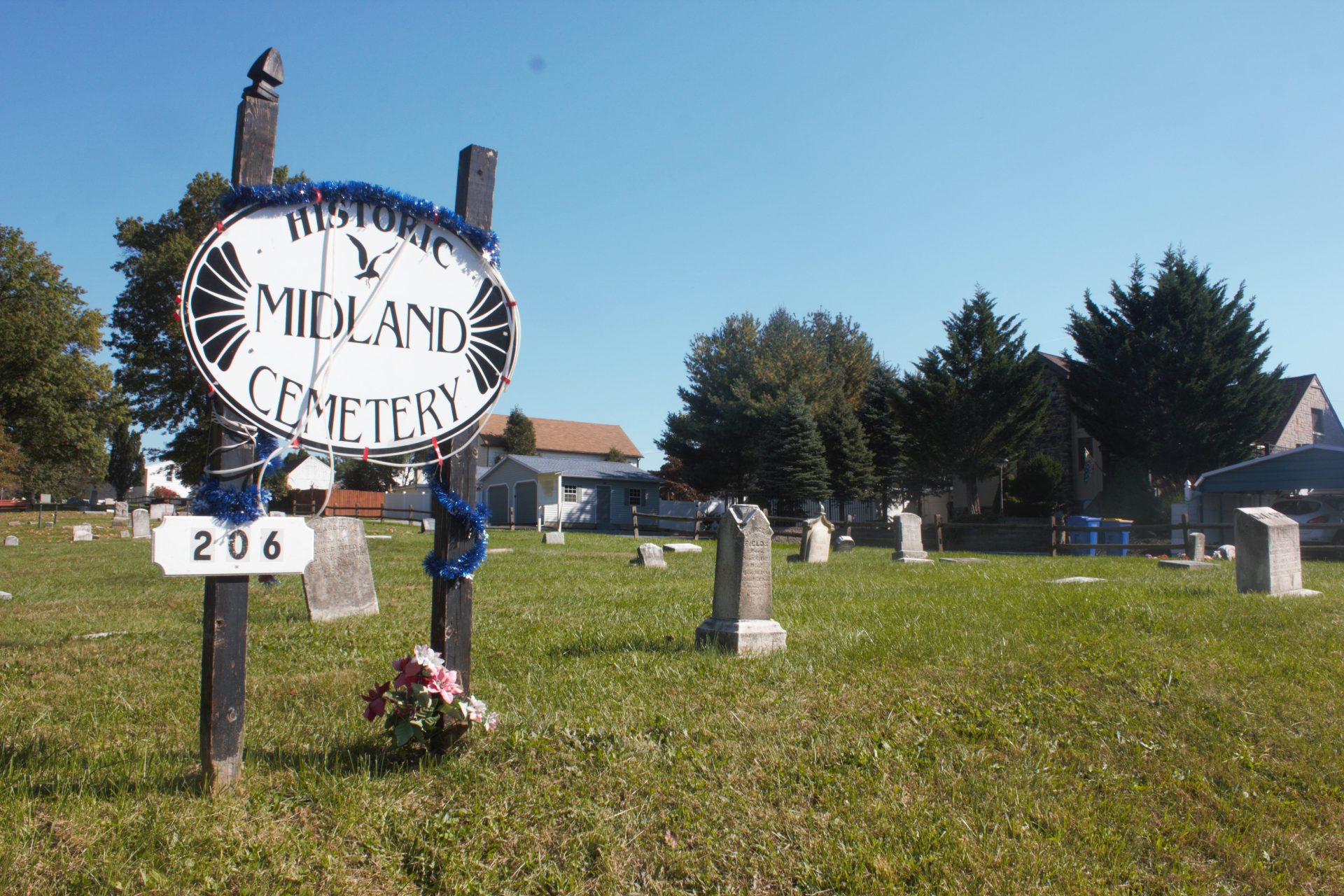
Gabriela Martínez/WITF News
Midland Cemetery in Swatara Township.
“What they told me is that they were going to put me in jail if I messed with the land, with the property and I said, ‘My grandpop’s here,’” Barksdale said. “Only to find out after I started cleaning it up that I found that my great-grand-aunt is buried over here. And my great-great grandmother is buried here.”
She said that part of her work was proving to the county veteran’s administration at the time — back in the early 1990s — that there were veterans buried at Midland.
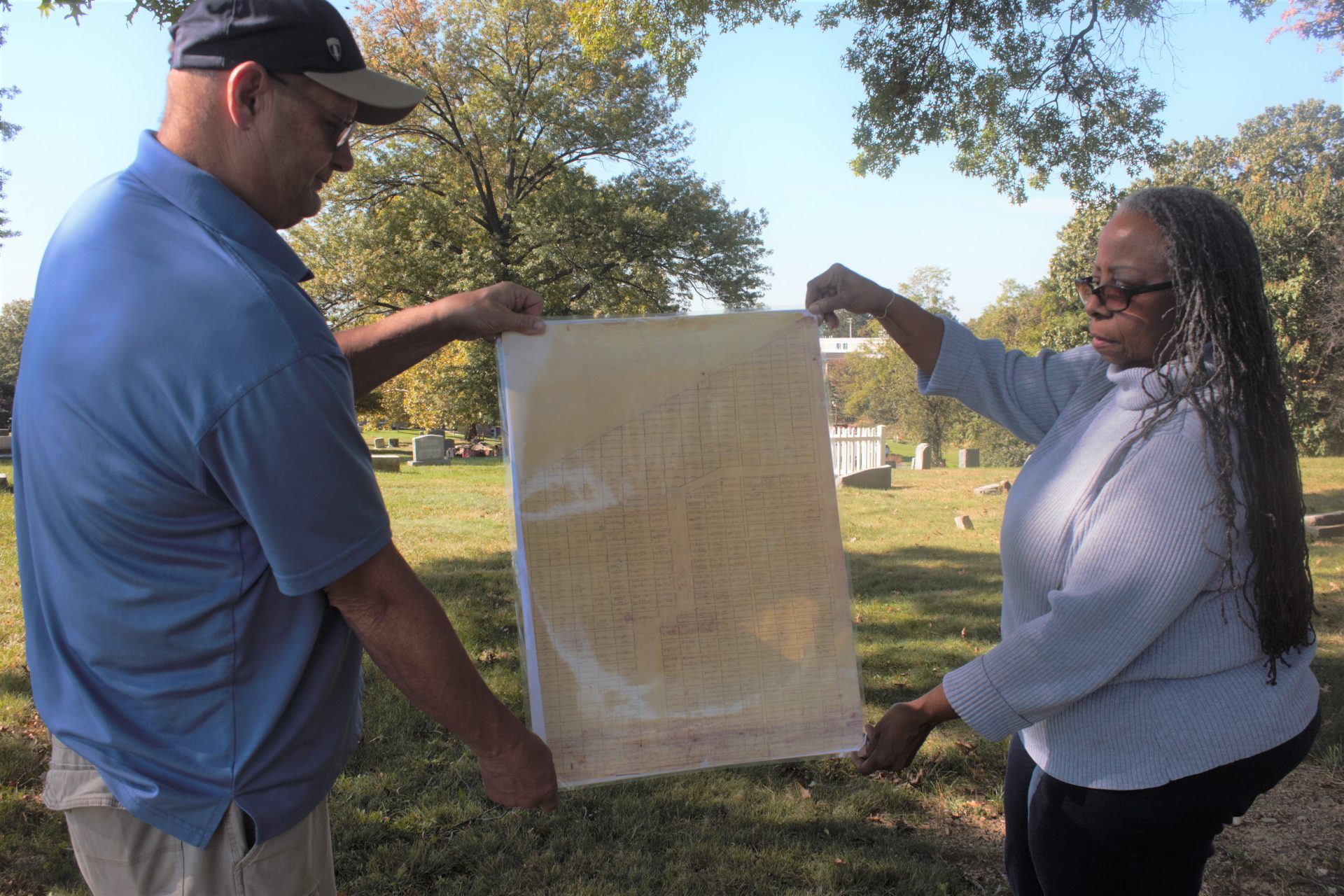
Barbara Barksdale, founder of Friends of Midland Cemetery and and Steve Mull from Steelton American Legion Post 420, hold an original plot map of the site.
Now, the site is owned by Friends of Midland Cemetery, led by Barksdale. She also leads the nonprofit Pennsylvania Hallowed Grounds, which helps people who are trying to restore abandoned Black cemeteries.
In addition to that volunteer work, state-led efforts to document historically significant African American burial sites are ramping up. The Pennsylvania Historical & Museum Commission is leading the Baseline Survey Effort, which sends teams to 52 counties to identify and gather data on sites of historical importance to add to the PA Historic Places Inventory, which is accessible through PA-SHARE. The Baseline Survey Effort is prioritizing African American churches and cemeteries and other kinds of sites tied to historically underrepresented communities.
Williams, who still drives from Buffalo to work at the cemetery in Harrisburg, said what she and others are doing goes beyond preserving the memory of individuals. The neglect of Black cemeteries, she said, is a form of erasure.
“That kind of violence against bodies, against history, against an identity, it continues into the living,” she said.
Respect for the dead means respect for the living, she said, and “it gives you grounding and a sense of, ‘I’m valued, and my body’s valued,’ and other people see that too, and you’re not lost.”
Gabriela Martínez is part of the “Report for America” program — a national service effort that places journalists in newsrooms across the country to report on under-covered topics and communities.
The days of journalism’s one-way street of simply producing stories for the public have long been over. Now, it’s time to find better ways to interact with you and ensure we meet your high standards of what a credible media organization should be.